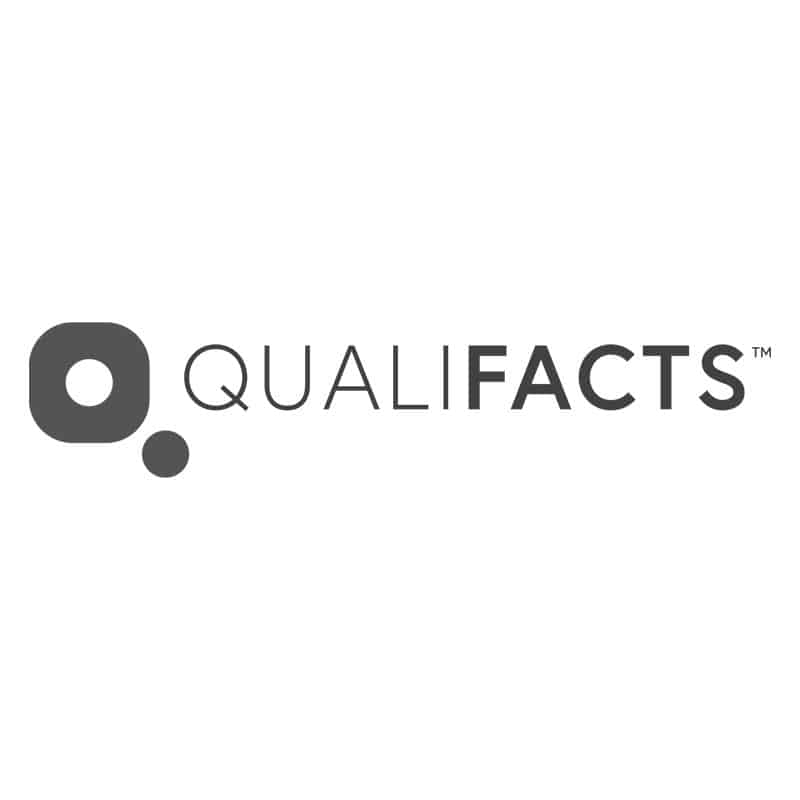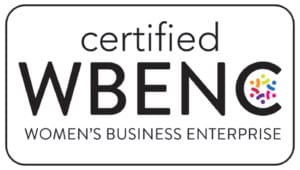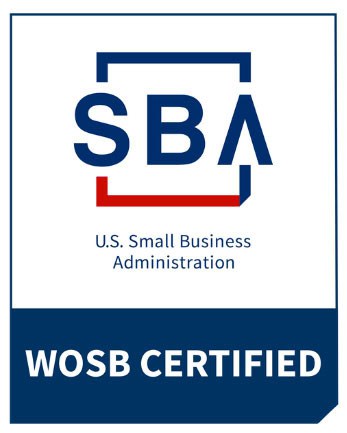So thank you all for being here. I’m really honored and excited to be with you. For those of you that I haven’t met yet, my name is Joyce Marter and I’m a licensed clinical professional counselor. I’m a psychotherapist and I’ve been practicing for about twenty years in private practice. I started a group practice called Urban Balance which today, I can’t believe it, has over a hundred therapists working from ten locations in three states. It grew a tremendous amount and I’m really excited to talk with you guys today about financial self-care and how to welcome prosperity.
This is something that I’m super passionate about. I’m really passionate about it because as a therapist, finances are a big part of people’s lives, right? It affects every part of their life. It affects their stress level, it affects their relationships, it affects where they live, hobbies, vacations, how they spend their time, and what their opportunities are. It affects every aspect of life. Finances are also something that most couples argue about, so it’s an important issue in our lives that needs to be addressed.
Something that I noticed that was really interesting is that as I’ve counseled people, whether they were coming in for depression or anxiety, relationship issues, or addiction, it didn’t matter. As I was counseling them, they started to make more money. I was like, huh, why is this happening across the board with my clients? They were getting raises, promotions, starting new businesses, and thriving and blossoming financially. Then I realized our self-worth affects our net worth. How we feel about ourselves, our self-esteem, can affect our bottom line.
I’m especially passionate about this for women because we women are socialized often to put other people first, to be good girls, to be of service, and sometimes that impacts us financially. I think the keynote speaker earlier today was talking about how we still have such a margin in pay raise; women are still being paid 80 cents on the dollar. This workshop is to help inspire you to welcome prosperity into your life because it can really open up so many doors.
I am writing a book and it’s called Mental Wealth. What I have come to believe is that true prosperity is when we have positive mental health, good self-esteem, love and support in our lives, connected relationships, and financial wellness. Is this selfish, greedy, or narcissistic? I’m seeing some “no’s”. No, it’s not. Sometimes people think money is bad, but I really believe that money can be incredibly empowering and life-changing. It depends on how you get the money and what you do with the money that makes it either bad or good. If you’re receiving money in a way that’s aligned with your unique talents in the world and sharing those, and reaping the benefits of that, and then sharing your prosperity in a way that can help others, my goodness, you can certainly help more when you have money. It allows you to do more than you might not have ever been able to do before.
I started my business with five hundred dollars and fifty thousand dollars of student loans. I’m a person who had tremendous financial anxiety because when I was growing up, my father was laid off in the automotive recession. From the time I was eight years old until I went off to college, he was unemployed most of that time and he had tremendous financial anxiety. He was born during the Great Depression and was very fearful when it came to money, and I absorbed that. So for me, having $50,000 of student loans made me really nervous. I remember once I was talking to my best friend and her husband is in commercial real estate, and she said, “Would it make you feel better if I told you that Steve has 300 million in loans?” I don’t think I could sleep at night!
My point is that I had this debt and went through kind of a financial rollercoaster in my own personal and professional life as I was building Urban Balance. Because it’s an insurance-friendly practice, the larger we got, the more money was outstanding from insurance companies because, you know, they take forever to pay. So I had cash flow problems, really bad, to the point where I thought I was gonna have to file bankruptcy. It was really scary and very stressful. I actually sold Urban Balance in 2017 when it was grossing over five million dollars a year. I want to share with you what I learned about my own relationship with money to welcome prosperity.
When I had more, I was able to give more. I could offer counseling at pro bono services if people didn’t have the money to pay, or on a sliding fee, or allow the staff to pick a charity of their choice and donate $100 to that charity each year. My point is, when we have mental health and abundance, we can do amazing things in our lives. This is not a new concept. Mental Wealth is not a new concept. This is Lakshmi, the goddess of abundance. She’s a Hindu goddess and in this picture, you can see she has gold coming out of her hands, so she has financial prosperity, but she’s also holding the lotus flower. The lotus flower is a symbol of spiritual enlightenment. To me, that is when you are living your life in a way that is connected with your Divine self, your soul, your unique spirit, and the gifts you have to give to the world. When you do that and you care about yourself, you can have abundance. Abundance can be money, but it can also be other resources. It can be love, friendship, support—there are so many gifts in the world that are available to you. Sometimes I think we set our own ceilings.
When I first started as a therapist, I had, again, fifty thousand dollars of student loans, and the average starting salary was eighteen thousand dollars a year. I heard of one woman that got a job for twenty-five thousand—this was in 1996—and I thought, “I want a job making twenty-five thousand dollars a year,” and I got one. I was very proud of myself until I discovered it’s really hard to live in Chicago making $25,000 a year. Then I decided two years later that I wanted to make thirty-five thousand dollars a year, so I got a job at an Employee Assistance Program making thirty-five thousand dollars a year, not any more than that. Then, when I started my private practice, I met with my friend Steve. Steve was starting his private practice and he said, “Hey Joyce, how much money do you want to make?” I said, “Gosh, it would be amazing if I could make $60,000 a year,” and he kind of frowned and he said, “Sixty? Oh, I want to make over a hundred.” I said, “Do you think that that’s possible?” He said, “Absolutely, that’s possible.” That year, I made sixty and Steve made over a hundred. I thought, huh, am I setting my own ceilings with self-limiting beliefs? Yes!
So I expanded my thinking. I have some resources coming up, but I started listening to a CD called Receiving Prosperity by Louise Hay. She does wonderful affirmations and has Hay House books which are really positive and supportive. This Receiving Prosperity thing basically teaches you how to think about your relationship with money. I worked on that and I decided that I was worth having money. It sounds crazy, but at that time, I had a tremendous debt from my business and no cash flow. I said, “I want two million dollars, universe, and I believe I’m deserving of that.” I went and talked to my CPA. He did a valuation of my business because I was in such a state I thought I was gonna have to file bankruptcy. He said, “Joyce, you won’t believe this.” I said, “What?” He said, “Your business is worth two million dollars.” That exact amount. Now, is that a coincidence? Maybe. Part of me thinks that’s pretty neat that it wasn’t until I realized that I was worth it and said that, that I found that out.
There’s an expression, “We’re all beggars sitting on a golden bench.” While not everyone may have a business that’s suddenly worth more than they thought, we all have talents and resources and opportunities available to us that can bring us prosperity if we shift our thinking to know that we are deserving. I have become really passionate about the psychology of money. Again, I think our families of origin impact how we think about money. People who grew up in poverty—I had one client, she grew up in poverty, and there was sometimes not enough food. She spent a lot of her life without toiletries, and as an adult, she became a hoarder because she was afraid that she wouldn’t have those things. She bought huge amounts of all of those products and she also became morbidly obese because she was afraid that food might not be available to her at some point. So our past impacts our relationships with money. We want to be aware of that and think about it.
I really believe in the abundance theory. There are two different ways of looking at life. There’s the abundance theory, which is the idea that there’s plenty for all of us—plenty of resources, whether it’s job opportunities, money, or whatever it is that we want—that it’s available. The scarcity model is like musical chairs, where there’s not enough and we have to compete and fight for resources. I really believe in the abundance theory and I’ve ascribed this to my business and my life. I often teach private practitioners, therapists who own their own practices, how to grow their practices. I’ve had people say, “Why do you do that? You’re creating your own competition, that’s ridiculous.” But what I believe is that when you share, that comes back to you in good karma. I would help others and guess what, they would refer to me. Maybe my practice took some insurance that theirs didn’t, or maybe they’d recommend me to a friend or something like that.
The first time I was on ABC, I was part of a segment about stress management. It was kind of funny because I didn’t follow my own advice at all. I didn’t get enough sleep, I over-caffeinated, and I didn’t have proper nutrition—I was completely stressed out. Yet, I was the expert. When the producer asked if I was ready to start shooting, I said, “Absolutely.” The sound guy then said, “Well Joyce, I can hear your heartbeat pounding through the microphone, so we’re going to need to re-mic you.”
My point is that sometimes we have to push ourselves out of our comfort zones in order to grow. This means taking new opportunities and saying yes to things, even if you might fail or not do the best job. Sometimes, you might do okay and new opportunities will unfold and become available to you. So, I encourage you to do that in many different ways in your life.
As a therapist, my job is to tend to people’s emotions, and wow, do we have a lot of emotions about money. Here are some that I’ve often seen and experienced myself. On the left are the darker emotions—the negative emotions that each of us might feel in our relationships with money. On the right, in gold, are the positive emotions. I believe we have a choice. We are each responsible for our own thoughts and feelings, and we can choose to make a shift. We can choose to coach ourselves through some of these negative emotions, to be our own compassionate advocate, and to say, “It’s okay. It’s okay that you’re scared. It’s okay that you’re feeling anxious. This is just a feeling. It’s a wave of energy in the body, a normal response to what you’re going through. But you can do this, and you’re worth it. You deserve it.”
I ask each of you to do that because, as women, if we collectively value ourselves, we can close that 80-cent-on-the-dollar pay gap. But we have to know that we’re deserving, and we have to ask. I loved it when the CEO of Salesforce, a huge corporation, heard about the gender gap and asked his accountants to see if it was happening within his own organization. He discovered that, unfortunately, it was, and he immediately increased all the women’s salaries to match the men’s. It cost millions of dollars, but wow, what an amazing thing to do. We all need to be part of that solution of closing the gap and managing our relationships with money.
Sometimes, we think that people who have money are narcissists, materialistic, bad people, or arrogant. These are often negative and false beliefs about money. Sure, some people have false egos and false pride and earn money in less than ideal ways, but I believe that when you align with your higher self and your greatest gifts in the world, you can welcome prosperity. This involves detaching from ego. We all have egos; it’s part of the human condition. But detaching from that and connecting with the deeper part of yourself is essential. I do this through meditation, yoga, and other psycho-spiritual practices, including counseling.
My own therapist once asked me, “Joyce, what does money mean to you?” when I was really stressed out about money. I said, “When I think of the word money, I think of stress.” She responded, “No wonder you make it go away. Can you change that? What would you like to believe about money?” I said, “I’d like to believe that it’s a resource, that it’s available to me, and that I’m deserving of that resource.” Once I worked on that, my life began to change. Understanding that your self-worth determines your net worth is crucial.
One time, I had my first out-of-state speaking engagement and didn’t know what to charge. I knew I often undervalued myself, so I called my friend Ross, who gives frequent speaking engagements. He gave me his dollar amount, which was higher than I would have been comfortable with, but I called back and stated my fee. They accepted without hesitation. When I called Ross back, surprised, he said, “You’re getting paid that much for a 45-minute keynote? I gave you my full-day rate!” Dr. Phil says the most you get is what you ask for, and I’ve found that to be true.
As an employer of both women and men, I’ve noticed that when I make a job offer, women often accept without negotiation, while men typically negotiate. Most employers have a range they can afford to pay, and they often start at the lower end. It’s your responsibility to advocate for yourself and ask for more, for what you deserve. I mentor my student interns on how to negotiate their starting salaries, even if it means they’re negotiating with me, because I believe as mentors, we need to help others value themselves and develop these skills.
Self-sabotage is something we need to be mindful of. We all unconsciously recreate what’s familiar until we choose something better. Be aware of how you might be hurting yourself—maybe through compulsive spending or soothing yourself with shopping beyond your means, creating stress and hindering financial progress.
Remember, having money isn’t about ego. You have more opportunities to be of service when you have more to give. I mentioned that I meditate and practice yoga, and these practices teach about the flow of breath. Love has a flow, and so does money. I’ve noticed that some people are very miserly, spending very little despite having a lot of money. Others spend beyond their means. You want to find a healthy flow where money comes in and goes out in a balanced way, with some saved for stability and security.
Financial empowerment is important. After my divorce, my older daughter, then 12, told me she was proud I could leave my marriage because I had the financial means to do so. Financial resources bring peace, stability, and security. Be mindful of spending seasons and plan for ebbs and flows, investing in yourself and welcoming prosperity.
Some people are financially unconscious. They don’t know their net worth, debt, or assets. We need to be financially aware—that’s the first step to being conscious. Blame and responsibility are key. Don’t blame external factors for financial difficulties; take responsibility and empower yourself to create the life you want. You must take action and have a map of where you want to go.
Our mental health has a huge impact on finances. Counseling can help us understand and improve our thinking and behaviors, whether dealing with depression, anxiety, or stress. Treating these issues is essential for financial well-being.




































